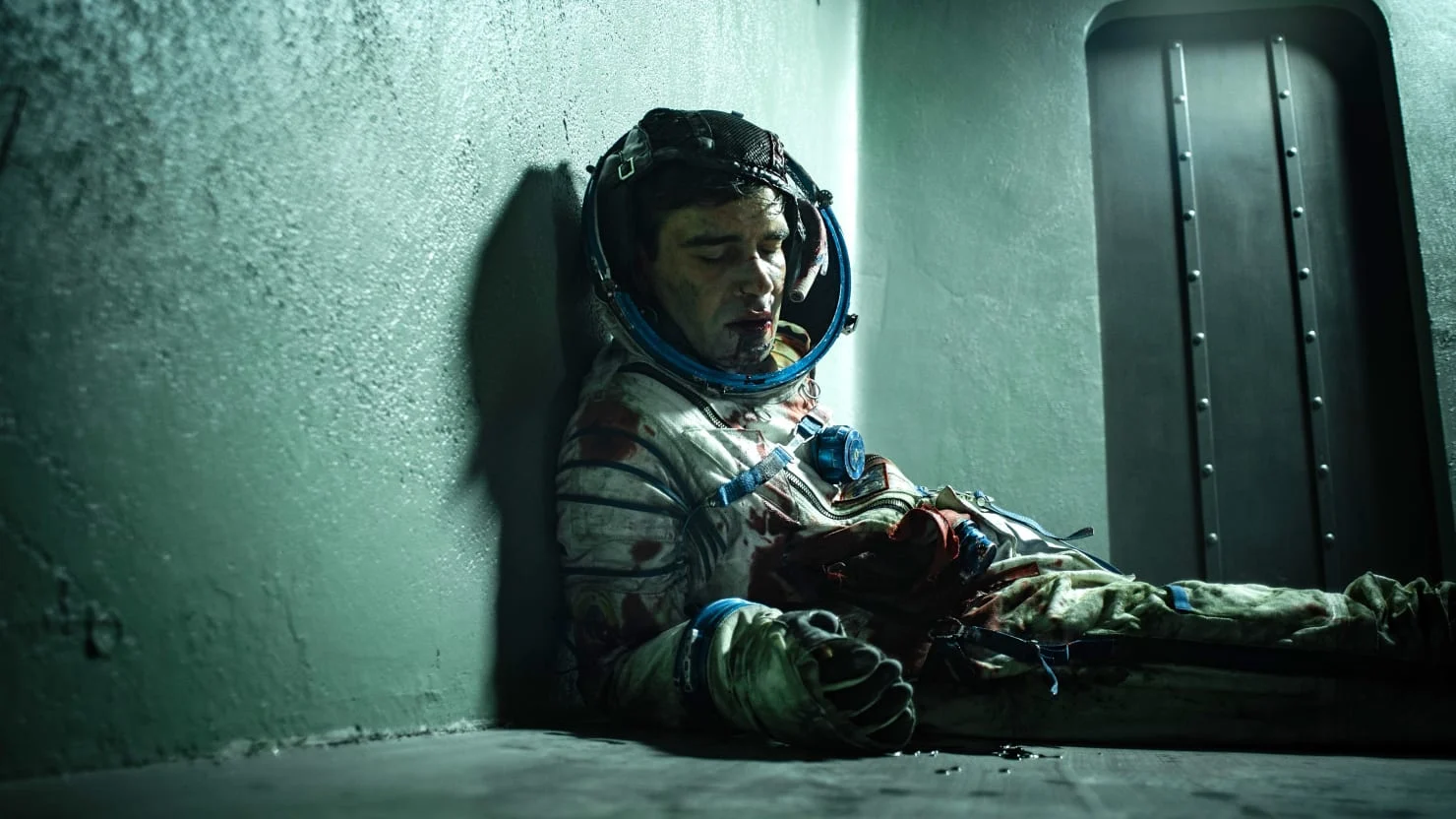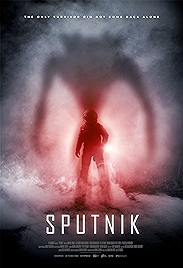Sputnik is a movie from 2020 set in the Soviet era. As well as having a fantastic story thick with allegorical possibilities, it also feels like a movie from the Soviet era – as if half inch steel plate had been riveted together.
There are touches of pure Hollywood too, not least in the character of its chief protagonist, the smart and businesslike Tatyana Klimova (played by the eye-catching Oksana Akinshina), a feisty shrink we first meet refusing to be made a scapegoat for some misdemeanour or other. Maverick credentials established, she’s soon been drafted in to take a look at a cosmonaut who’s recently arrived back on planet Earth after his mission went a bit awry.
Konstantin Veshnyakov (Pyotr Fyodorov) is being held in quarantine in a remote facility. He’s lucky – his fellow cosmonaut died gruesomely soon after their ship touched back down in Kazakhstan. Less luckily, there’s something living inside Veshnyakov, an extra-terrestrial thing that exits his body (spectacularly) at night to feed.
So, a little bit Alien, a little bit The Astronaut’s Wife, and a whole lot its own thing entirely. And that’s about as much plot as it’s necessary to know about Sputnik. The rest of the film consists of the shrink learning about the true nature of the creature inside the colonel, and wondering how much the colonel understands about what’s happening to him while he sleeps. He seems, by day, to be a normal human being, to the point where he’s beginning to ask awkward questions. He’s a hero of the Soviet Union and deserves better treatment than this!
Perhaps the thing inside Veshnyakov is an allegory for communism – can you remove the Soviet State from Soviet Man? – perhaps it isn’t. Either way it adds a layer of interest to an already extremely interesting film, one glorying in the sweat and the stubble of the era, Maxim Zhukov’s cinematography layering a hellishly dark note onto the rain-lashed landscapes and the many shots of deserted scrubland. Sunny exteriors, which are a rarity since most of this film takes place at night, are only glimpsed tantalisingly, through a lace curtain for instance. Murk is the name of the game.
Oleg Karpachev’s score, all military drums and whale whistles and groans, is too loud, but maybe I just had the 5:1 mixdown all wrong (don’t get me started). Even high in the mix, it’s moodily effective, summoning both the Soviet era and the sci-fi ethos.
Eventually, the need to say something “important” about the Soviet era to the domestic Russian audience that’s clearly this movie’s target starts to get in the way of the visceral (in every sense), and what should be a straightahead sci-fi story, but Klimova’s lithe, fierce and intuitively intelligent character helps bounce the film over the boring bits, which only start to build into drifts towards the end.
Anton Vasilev as Yan Rigel, the institute’s technical boss, nose out of joint because of this new arrival who has a direct line to the top, is another nod to Hollywood, the passed-over male. He’s very good at it, and makes for a handy obvious villain candidate. And there’s a meaty role for Fyodor Bondarchuk, a one-man Russian movie industry – he writes, acts, directs, produces, is a TV host, owns a production company and is the son of Sergei Bondarchuk, a titan of Soviet cinema – as the institute’s director.
You could draw a parallel of sorts with Arrival. Both feature women doing detective work in an attempt to work out what an alien presence wants, but whereas Arrival was all bright lights and optimism, Sputnik is gloomy in the extreme, and maybe owes something to Vincenzo Natali’s “Frankenstein sci-fi” horror movie Splice. Whether talented director Egor Abramenko, in his debut feature, had seen Natali’s movie or not, Sputnik’s defining feature is its skilfull command of atmosphere.
Sputnik – Watch it/buy it at Amazon
I am an Amazon affiliate
© Steve Morrissey 2021


